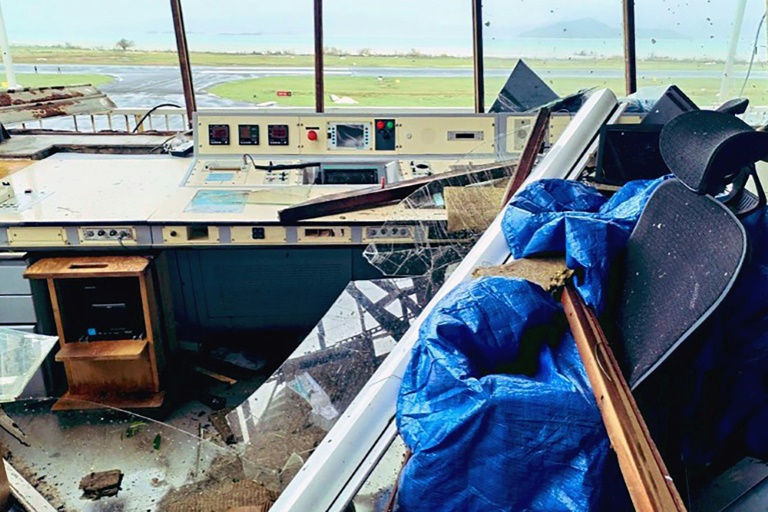In the strategic recalibration of US-Iran relations, the Biden administration’s definitive pivot away from a policy of appeasement toward Iran’s regime heralds a watershed moment. This shift, as highlighted by the US State Department’s Persian Section, underscores a resolute commitment to confront the regime’s authoritarian grip and its destabilizing regional ambitions. This policy realignment represents not just a rejection of past overtures but a clear-eyed recognition of the regime’s intransigence and its disconnection from the Iranian populace’s aspirations.
Past American diplomacy with Tehran
Historically, diplomatic engagements with Tehran have often been predicated on the hopeful premise that dialogue with the regime’s clerics could yield constructive outcomes. Yet, this approach has consistently fallen short, as the regime, far from being a legitimate representative of the Iranian people, has continued to prioritize its survival and ideological agenda over national well-being and international cooperation. The stark reality is that diplomacy with the mullahs has proved fruitless, serving only to embolden a regime that remains fundamentally opposed to reform or moderation.
Complicating the landscape is the existence of so-called reformists within the regime’s political spectrum. These entities, often portrayed as moderates seeking change, are, in truth, but the other side of the radical hardliner coin. Their professed goals of reform do not extend to a genuine transformation of the regime but rather, to its preservation under a veneer of progressivism. This duality within the regime offers an illusion of choice, while ensuring the continuity of authoritarian rule.
The external opposition, too, presents its quandaries. Much of the diaspora opposition, lionized as champions of democracy, remain ideologically anchored to the principles that precipitated the 1979 revolution and the subsequent fall of the monarchy. This allegiance to the foundational tenets of the Islamic Republic, coupled with a rejection of the Pahlavi dynasty, underscores a fragmented opposition landscape that often struggles to present a cohesive or viable alternative to the current regime. Furthermore, segments of this opposition have been marred by allegations of corruption and opportunism, leveraging their status for financial gain, rather than the pursuit of genuine democratic change.
Historically, the West’s diplomacy with Iran, particularly under Democratic leadership, has often been criticized for its overtures to Tehran’s ruling clerics, dubbed by detractors as “terrorist-loving mullahs.” Such approaches have yielded scant progress toward peace or regional stability. Echoing the sentiments of Prince Reza Pahlavi, a vocal advocate for a more assertive stance against the Iranian regime, the US is now poised to challenge the status quo, recognizing that true peace cannot be brokered with a regime that lacks both legitimacy and the respect of its people.
The narrative of appeasement has found its antithesis in the figure of Reza Pahlavi. Unlike the disparate and ideologically varied opposition factions that have emerged, often with ties to the ideologies that fueled the 1979 revolution, Pahlavi offers a unique blend of historical legitimacy and modern vision. His leadership is not mired in the revolutionary zealotry that has compromised other opposition efforts but is instead propelled by a unifying call for democratic reform and human rights.
In this complex milieu, the figure of Reza Pahlavi emerges as a unifying symbol of hope and potential. Unlike the regime’s faux reformists or the ideologically compromised diaspora opposition, Pahlavi offers a vision of Iran that transcends the entrenched divisions of the past. His advocacy for democracy, human rights, and international reintegration speaks to the core desires of the Iranian people, particularly the youth, who seek a future defined by freedom, dignity, and prosperity.
Pahlavi’s resonance with the Iranian youth and the broader diaspora is not merely a reflection of his royal lineage but a testament to his ability to articulate a vision for Iran’s future that diverges sharply from the theocratic despotism of the current regime. His prominence and the slogans of support chanted by the young signal a deep-seated yearning for change – a change that aligns with the aspirations for democracy, stability, and reintegration into the global community.
Pahlavi as a future potential leader
This evolving consensus around Reza Pahlavi as a potential leader for a new Iran underscores the imperative for the international community, particularly the United States, to reassess its engagement strategy with Iran. Supporting the aspirations of the Iranian people means recognizing and backing credible leaders who possess the vision, legitimacy, and support necessary to shepherd Iran toward a brighter, democratic future.
As the United States reevaluates its approach to Iran, understanding the nuanced dynamics of internal opposition and the illusory nature of regime reformism is critical. Supporting the Iranian people’s aspirations for change means recognizing the limitations of engagement with a regime that lacks legitimacy and the duplicity of an opposition mired in the ideological battles of yesteryear. The emergence of leaders like Reza Pahlavi, who embody the principles of unity, reform, and progress, offers a beacon of hope not only for Iran but for the stability and security of the broader Middle East and beyond.
In this pivotal moment, the international community must align its policies with the realities on the ground, fostering conditions conducive to a peaceful transition of power in Iran. This entails a strategic and principled support for figures and movements that genuinely represent the will and welfare of the Iranian people. As we navigate this critical juncture, the promise of a democratic Iran, free from the shackles of authoritarianism and extremism, remains a paramount goal – a goal that, with the right leadership and international backing, is within reach.
The revised US stance on Iran ushers in a pivotal era, where the leadership of figures like Reza Pahlavi is indispensable. Navigating toward a democratic Iran, extricated from authoritarian and terrorist influences, demands an international alliance, imbued with strategic insight and a deep-seated dedication to the tenets of freedom and human respect.
Though the journey is beset with hurdles, the potential for a transformative Iran kindles a shared aspiration for a peaceful and flourishing state. At this decisive crossroads, Reza Pahlavi’s guidance and vision shine as emblems of hope, offering not only a brighter future for Iran but also enhancing stability and safety across the Middle East and beyond.
The writer is a counterterrorism analyst and Middle East studies researcher based in Washington, with a particular focus on Iran and ethnic conflicts in the region. His newly-published book is The Black Shabbat, published in the US. Follow him on X @EQFARD and at www.erfanfard.com.







